What's New
What's New with My Site?
March 4, 2010
Douglas Valentine's History of the DEA
Of Course Narcs Are Crooked ...
By RON JACOBS
We've all seen a television show or a movie about an undercover narcotics
cop who become crooked. He loses the trust of his colleagues, then his
family. Soon, the only contacts he has are with the world of drug dealers
that he originally set out to destroy. Now picture this scenario of the
criminal cop on a worldwide scale and condoned by various governments and
their agencies, including that of the United States. Let's go a step
further and understand that not only are these governments condoning these
rogue activities, they consider them valuable to their national security.
So, they allow drug dealers to bring huge amounts of heroin and cocaine into
the country while at the same time others on the government payroll are
arresting drug dealers not favored by US intelligence.
The scenario described above is but one aspect of the so-called war on drugs
waged by the United States government. The "war" as it is being fought is,
like all wars, much different than originally advertised. Even if there
were pure motives ascribed to this war at its inceptions, those motives have
long since disintegrated into an abyss of duplicity, denial, and atrocity.
Like its progeny the global war on terror, the US war on drugs is a war that
its antagonists never want to end since its termination would mean an end to
their profit and status. Indeed, an end to the war on drugs would mean an
end to the very agencies designed to fight it and the billions of dollars
those agencies take from the taxpayers every year. Also like the global war
on terror, the war on drugs is against an enemy that does not exist in terms
of sovereignty persons, but as a phenomenon impossible to defeat.
Therefore, it is an endless pursuit. In addition, it is a pursuit where the
individual actors are often on both sides of the battle: where a drug dealer
is also an informer and where a terrorist is also a CIA plant. To top it
all off, these two wars on phantasms are interlinked. From the poppy fileds
and heroin labs of Afghanistan and Pakistan to the coca fields and cocaine
labs of Colombia (with many other places in between), the funding of terror
and insurgent groups and the funding of forces fighting them is connected to
the international drug trade.
The web of individuals, criminal groups, and other organizations involved in
the international drug trade is multidimensional and complex. This is also
the case with the individuals and agencies enlisted by the US government to
fight that trade. The federal Bureau of Investigation (FBI) and the Drug
Enforcement Agency (DEA) are among those who have attempted to catalog the
elements involved in the drug trade. Author Douglas Valentine (The Phoenix
Program) is one of the few that have attempted to catalog and describe the
web woven by the government agencies supposedly fighting that trade. In so
doing, he has described a system riddled with corruption and criminality.
Sometimes this is the work of individuals enlisted by the agencies;
sometimes it is the result of interagency turf battles; and sometimes it is
agency policy.
Valentine's first book on the subject is titled The Strength of the Wolf:
The Secret History of America's War on Drugs. This book told the history of
Henry Anslinger's Federal Bureau of Narcotics (FBN) in all of its corrupt
detail and racist assumptions. The stories between the book's covers have
enough fodder for a dozen Hollywood movies or a multitude of crime novels.
His latest on the subject, The Strength of the Pack: The People, Politics
and Espionage Intrigues that Shaped the DEA, covers the period beginning
with the dissolution of the FBN, the short tenure of the Bureau of Narcotics
and Dangerous Drugs (BNDD), and the creation and continued existence of the
Drug Enforcement Agency (DEA). It is a voluminous work with more characters
than the proverbial Russian novel. Impeccably researched and documented,
The Strength of the Pack details the cowboy attitudes of BNDD and DEA agents
and the criminal acts with which they were often involved. It is the story
of a bureaucracy constantly at odds with itself and with other agencies,
especially the CIA. The conflict with the CIA was directly tied to that
agency's use of drug running enterprises in its counterintelligence
endeavors. It is the author's contention that this conflict was a product
of the CIA's pursuit of its anticommunist agenda no matter what the cost.
This contention is supported by the facts presented. There are mafia drug
dealers let go and murderers employed by the CIA left to continue their
criminal pursuits--all because of the role they played in Washington's war
against the Soviet Union.
The US war on drugs begun by Richard Nixon preceded the war on terror by
almost twenty years. The destruction of the Bill of Rights Americans
currently accept as fact began then. No Knock warrantless searches, torture
of suspects, and the assassination of foreign individuals became accepted
practice under the DEA. Indeed, some of these became law. Like the war on
terror, the war on drugs preys on the fear of the unknown. Likewise, it
presents the use of force as the most effective means to fight the war,
despite decades of evidence proving that this is not the case. Also, like
the war on terror, the war on drugs has created a bureaucracy and a
subsidiary industry in the private sector that exists only to perpetuate
itself. This is arguably a primary reason why marijuana remains illegal in
the United States--because too many people on the supposedly right side of
the law make a living from its illegality.
Valentine seeks the truth in his books. In doing so, he uncovers a lot of
ugliness regarding the men and women who say they are protecting us. For
some readers, his revelations about the US-run assassination program in
Vietnam called the Phoenix program or his detailing of the corruption and
criminality of those hired by the US government to keep heroin and cocaine
away from America's youth might be too much. This in itself is reason
enough to read his books. The facade of morality that the DEA hides behind
should be torn away if this country is to ever have a sane and humane drug
policy. Just as importantly, that facade needs to be destroyed if it is
ever to have a sane and humane foreign policy.
As Valentine's books make perfectly clear, there is more than a bit of
venality behind almost every bureaucrat and political appointee presented to
the populace in any given year. Donald Rumsfeld or Hilary Clinton, Robert
McNamara or William Colby, the men and women that run the United States are,
after all, human. Some would argue that they define humanity's baser
elements.
Ron Jacobs is author of The Way the Wind Blew: a history of the Weather
Underground, which is just republished by Verso. Jacobs' essay on Big Bill
Broonzy is featured in CounterPunch's collection on music, art and sex,
Serpents in the Garden. His first novel, Short Order Frame Up, is published
by Mainstay Press. He can be reached at: rjacobs3625@charter.net
Marine reportedly killed by opium-fueled private contractors
 Pentagon originally said Marine killed in combat
Pentagon originally said Marine killed in combat
The Pentagon confirmed late Tuesday that it is investigating the death of a 24-year-old Indiana Marine after he was shot to death in Afghanistan, allegedly by several US-paid private security contractors.
The contractors, according to a fellow Marine in Afghanistan who communicated with an investigative reporter in Chicago, were Afghanis who were found with "copious amounts of opium" and had been paid by the United States as guards.
"He was killed by American Hired Local National Contractors that were high on opium the morning of the 19th," the ABC reporter quotes a friend and fellow colleague of Lance Corporal Joshua Birchfield as saying in an email message.
Lance Corporal Joshua Birchfield was killed after being shot in the head Feb. 19. The Department of Defense originally reported that he died of "small arms fire" while in combat.
But the story is apparently darker and more complex -- raising questions of whether the Pentagon originally concealed information about the Marine's death.
The Chicago Marine who tipped off the ABC reporter purportedly wrote a detailed email surrounding the circumstances of Birchfield's death. In it, he asserts that the young Marine was killed by Afghanis paid as private contractors.
"These men are armed to the teeth and supposedly here for our protection," the fellow Marine is said to have emailed. "We have been shot at by the contractors on several cases before this incident. We have been told to refrain from returning fire and attempt to identify ourselves as Marines so they stop shooting."
"They are also drug abusers," he continued. "The shooter was found to have copious amounts of wet opium on him shortly after the shooting ... we found a bag of wet opium in the compound that the contractors were using to get high."
"A mix of drugs and gray areas of loyalty between U.S. forces and Taliban seems to be the motivation behind the shooting," he added.
The Pentagon, announcing an investigation into the death on Wednesday, declined to say what exactly they were investigating.
Pentagon spokesman Geoff Morrell told the Associated Press "the military is looking into the circumstances surrounding the Feb. 19 shooting of 24-year-old Lance Cpl. Joshua Birchfield of Westville. He declined further comment."
"Maj. Carl Redding of the Marine Corps confirmed the investigation but referred additional questions to Marine Corps officials in Afghanistan," the AP added.
Investigators reportedly found the private security guards with drugs and weapons and placed several under arrest.
ABC reporter Chuck Goudie wrote about Birchfield's death in a column in the local newspaper The Daily Herald. Curiously, his column includes the caveat, "The views in this column are his own and not those of WLS-TV." WLS-TV is an ABC affiliate.
Goudies says Birchfield "was on a security patrol about a half-mile from a Marine forward operating base. About 7 a.m., as day broke, shots were fired at Birchfield's patrol team, according to members of his unit. The ambush was by U.S.-hired security guards who were supposed to be protecting a highway paving project from Taliban-installed roadside bombs."
"The contractors were able to have such proximity to a U.S. patrol because we pay them to work on our FOB (forward operating base), pave the 515 (highway), and provide security from Taliban IED (roadside bomb) implacers in the area," he says he was told.
| March 8, 2010 | Watch the final preview!
| ||||
| An investigation into suspicious circumstances surrounding the sale of the former Huffman Aviation has unearthed an explosive secret at the heart of an otherwise unremarkable aviation facility. Almost since its inception, the specter of heroin trafficking has hung over the airfield which would later become the Venice Municipal Airport. During World War II, when it was known as the Venice Army Air Field, it was home to the Stateside operations of a man widely and credibly accused of using proceeds from international heroin trafficking to prop up the war machine of a corrupt Chinese warlord whose army, even after its defeat, hung on to a lion's share of Southeast Asian real estate which became known as the Golden Triangle. Contemporary newspaper clips from the time show that the Venice Airport has had an extraordinary six-decade long history, and been the scene of covert activities including gunrunning, international heroin and cocaine trafficking, and being used as a launch pad for coups in the Caribbean and Central America. These activities required, available evidence will show, the regular and systematic corruption of officials in Venice and Sarasota County. The recent infamous and still-painful history of the Venice Airport, home base for Mohamed Atta and his crew of terrorist hijackers, it turns out, is just the most recent in an extraordinary history of elite deviance, criminal mischief, and international intrigue. In an ironic twist, without the FAA’s remarkable campaign of arm-twisting and bullying of hapless local officials to secure their approval of the new owners of what used to be Huffman Aviation, hand-picked by a federal receiver who a U. S. District Court Judge in Tampa had appointed to unravel the financial affairs of Art Nadel six days before Nadel had even turned himself in... we might never have sifted through decades of newspaper clippings, and the remarkable story of the Venice Municipal Airport, which is the very definition of America's secret history, might never have come to light.
Since the early days of the Second World War, when it was still known as Venice Army Air Field, the pattern of covert activity at the Venice Airport has remained remarkably consistent over six decades. Ironically, it was an attempt to continue to conceal the airport's original mission, an elaborate cover-up in 1992 seemingly designed to prevent the airport’s clandestine role from ever becoming public knowledge, which first piqued our interest in the story of the man whose operations shaped the Venice Airport's early history. But the cover-up backfired, and became visible, where it remains to this day, in an unlikely location: Directly across from the Venice Airport sits an historical plaque dedicated in a ceremony in 1992 to commemorate the airport’s beginnings as a U.S. Army Air Base during World War II. The wording on the plaque states The Venice Airport, states the plaque, has its origins in the early days of WW2, when it was known as the “337th Army Air Field Base.” However, strange as it may see, there is no such entity: there is not, and never has been, anything called the 337th Army Air Field Base. At the inception of what became the Venice Airport, as is fairly widely known, it was known as the Venice Army Air Force Base. So, what is going on?
| |||||
October 15, 2009 | Preview III: "New American Drug Lords" |
| But only recently did we learn that Myron Du Bain’s life-long ties to the CIA included two stints at the helm of the Stanford Research Institute (SRI), famous for its classified research into psychic viewing. the results of which are currently on display in “The Men Who Stare at Goats.” Psychic Research with wartime applications A January 10, 1984 headline in the New York Times read “PENTAGON IS SAID TO FOCUS ON ESP FOR WARTIME USE.” “THE Pentagon has spent millions of dollars, according to three new reports, on secret projects to investigate extrasensory phenomena and to see if the sheer power of the human mind can be harnessed to perform various acts of espionage and war - penetrating secret files, for example, locating submarines or blowing up guided missiles in mid-flight. “Further, one of the reports says concern about a psychic arms gap has reached as high as the White House in at least one instance. In 1977, by this account, President Carter ordered the Central Intelligence Agency to conduct a high-level review of psychic research behind the Iron Curtain in an attempt to assess a possible Soviet threat." Columnist Jack Anderson followed the story closely for years. "U.S. intelligence agencies won't talk about it, but they are rushing to catch up to the Soviet Union in what one scientist called "The race for inner space--psychic research." White knight talking backwards... and out of the side of his mouth As President of SRI during the late 60’s, he faced regular protests over the institute's controversial military contracts, including studies on chemical warfare and LSD. The Stanford campus was up in arms over SRI’s involvement in LSD experiments being conducted at the Veterans Hospital in Redwood City (where author Ken Kesey first took LSD) resulting in Stanford University issuing a statement in 1970 cutting it’s ties to the institute which bore its name. "The university outlawed secret research in 1969 and there is no evidence that current faculty is involved," the statement said. That wasn't the end of it, of course. In 1977, the University admitted a few (seven) experiments done for the CIA, with quaint names like "Project Knockout." Residents of La Honda, CA who remember Kesey have told interesting stories to researchers. One who lived there in the early '70s worked for five years testing LSD on monkeys in experiments commissioned by SRI. And writer Robert Stone, who won a Wallace Stegner Fellowship to Stanford University, has said, "The Stanford Research Institute was funding breakthrough research in circuitry at the same time as it was producing CIA-funded lovely liberating drugs." Myron, We Hardly Knew Ye He was also influential at the Pacific Institute, which kept former Bush Secretary of Defense Donald Rumsfeld from starving while Clinton was President in the 90’s. In addition to belonging to the exclusive Bohemian Club, whose annual retreats provide grist for innumerable conspiracy mills worldwide, Du Bain served as chairman of the United Way of the Bay Area, a director of the San Francisco Opera, and a governor of the San Francisco Symphony. In a quote in his obituary, former Secretary of State Henry Kissinger, characterized as “Du Bain's longtime friend,” calls him a man of "boundless optimism, tremendous buoyancy and patriotism." Du Bain’s importance in American geo-politics was reflected in several early initiative in China with which he was involved. Du Bain was into China before being into China was cool.
A portal into the abyss Hilliard went from being a wealthy Green Bay WI insurance executive whose official corporate slogan was “Love God & Back the Pack” to fronting for clandestine operations bearing the almost unmistakable mark of the CIA. His two flight schools trained dozens of Arabs, several later made infamous for having killed thousands in New York and Washington D.C., and others less well known but who are today nonetheless considered terror suspects. Hilliard also served duty as the “paper” owner of record on FAA registrations for dozens of airplanes. that some of them were used in CIA renditions and international drug trafficking. On July 25, 2000, Wally Hilliard’s LearJet was surrounded by machine-gun-toting DEA agents at Orlando Executive Airport. They found 43 lbs. of heroin aboard. Although Hilliard claimed innocence, saying the plane had been leased to others, DEA Agents testified that Hilliard's planes made 39 weekly trips to Venezuela before being busted, and Federal prosecutors argued Hilliard was not an “innocent owner,” and therefore should get back the plane. A federal judge agreed; and, as court documents show, Hilliard lost the LearJet in government forfeiture proceedings. "Being connected means never having to say you're sorry." The list of individuals that Wallace J. Hilliard is associated with who are involved in America's "Clandestine Services" and who can fairly be described as "covert operatives" is a long one.Another example is Farhad Azima, who leased his plane to Ollie North so he could go to Iran, was implicated in the S & L scandal ( specifically Indian Springs S & L out of Kansas City), named in the Lincoln Bedroom scandal, and has run CIA affiliated airlines going all the way back to the 70's with Egyptian-American Air Transport. He and Hilliard are partners in a venture called Spatialight. See an SEC filing here. Almost eight years had passed since terrorists practiced ‘touch & go’s’ on the airport’s runways. It is an open secret in aviation circles in Southwest Florida that the two men who had had direct business dealings with terrorist ringleader Mohamed Atta—Dutch national Rudi Dekkers and American financier Wally Hilliard—have personal and business histories that cannot withstand close scrutiny. | |
What's New with My Subject?
May 21 2008 | |
|
The Guyanese pilot implicated by a former Customs agent as part of a ring of corrupt Customs officials being investigated by the Dept. of Homeland Security was in the news again recently as part of another scandal, this time in his native Guyana. Michael Francis Brassington, whose name is a footnote in the 9/11 investigation, was named in a procurement scandal over the disputed purchase by the Guyana Defense Forces of two antique 30-year old helicopters from a 'dummy' company in Delaware that sounds suspiciously like a front for the CIA, the ironically-named “Global X Group.” The company may have no visible corporate history and a suspiciously- improbable name, but today one thing "Global X Group" does have is a whole lot of Guyanese Government cash. The citizenry of the tiny impoverished South American country of Guyana were up in arms over the scam, which fleeced them of $1.5 million, a sizable sum in a country with a deteriorated infrastructure, bad housing, While researching pilot Brassington's involvement in the Guyana scandal, we were astonished to discover that Brassington’s father (also named Michael Brassington) has close business ties with one of the most notorious oligarchs in the Russian Mob, Oleg Deripaska, the “last man standing” in the brutal Aluminum Wars in Russia during the 1990’s for control of that strategic resource. This information is important to a full understanding of the 9/11 attack. Brassington’s name surfaced in connection with 9/11 because he had been the co-pilot on the drug-running Lear jet (N351WB) owned by Wallace J. Hilliard (right). Hilliard also—and not coincidentally—owned the Venice FL flight school where Mohamed Atta and Marwan Al-Shehhi were at the time learning to fly. Brassington, as it happens, is also one of two figures in the "100 Drug Plane-U.S. Customs Scandal" who have threatened to file lawsuits against the MadCowMorningNews for our coverage of the developing scandal. Small world.
| |
Briefing on Release of the 2010 International Narcotics Control Strategy Report (INCSR)
Assistant Secretary, Bureau of International Narcotics and Law Enforcement Affairs
MR. TONER: Good afternoon – I had to check. It’s my pleasure to introduce you today to Assistant Secretary David Johnson of the Bureau of International Narcotics and Law Enforcement Affairs. He’ll be briefing on the annual comprehensive assessment of worldwide illegal – of the worldwide illegal drug and transnational money laundering situation, known as the International Narcotics Control Strategy Report, or by the acronym INCSR.
This report covers calendar year 2009 and its conclusions reflect the Department’s analysis of the international drug control and money laundering environment during the last calendar year. The briefing’s on the record and CDs of the two-volume report are available in the Press Office. We’ll also be bringing them in here to hand out and will be posted on the State Department website at the conclusion of the briefing.
Without further ado, I’ll let the Assistant Secretary take over.
ASSISTANT SECRETARY JOHNSON: Thank you.
MR. TONER: Thank you.
ASSISTANT SECRETARY JOHNSON: Good afternoon. Today, we have the opportunity to present the 27th edition of the International Narcotics Control Strategy Report to the Congress, or INCSR, as we refer to it here. This report is a review of foreign governments’ efforts to deal with their own domestic narcotics problems and to meet their international responsibilities as set forth in UN narcotics and crime treaties.
The drugs and chemical controls section covers some 130 countries and jurisdictions. The second section on money laundering and financial crimes describes the efforts of 60 nations to implement strong anti money-laundering and counterterrorist financing regime. This information provides a comprehensive assessment of the worldwide illegal drug and transnational money laundering terrorist finance situation.
This report’s been prepared in accordance with Section 489 of the Foreign Assistance Act of 1961, which requires us to identify major illicit drug-producing countries and major drug-transit countries, major sources of precursor chemicals used in the production of illicit narcotics, or major money-laundering countries. Section 481 of that act defines a major money-laundering country by statute as one whose financial institutions engage in currency transactions involving significant amounts of proceeds from international narcotics trafficking. That means both those states that are having challenges as well as those simply with very large financial industries.
This year’s report covers calendar year 2009. Its conclusions reflect the Department’s analysis of the international drug control and money-laundering terrorist finance environment during the past year. Based on the analysis, we identify the challenges that we have faced with our partners, but more importantly, it points to lessons learned which will help all of us – the United States as well as our partners – identify practical ways to address the problems of narcotics and crime.
The United States provides significant assistance and resources to our partner states to help develop effective law enforcement, judicial institutions, and anti money-laundering regimes. While we’re judicious in determining how best to provide these resources, our cooperative efforts are essential to deter illicit drug and transnational crime from reaching our shores, as well as from destabilizing our partners. Additionally, we and our partners are working to reduce our own demand for illicit drugs within our own borders in concert with efforts made by other consumer nations. As made clear by the Secretary in her first visit to Mexico, we view this as a shared challenge and a shared responsibility.
If you’ll allow me to do one thing slightly off the subject, last week in Afghanistan when the bombing took place, one of our own fine, young, and dedicated Afghan employees was seriously injured. On behalf of all of his colleagues here in Washington, we want to wish him a speedy and full recovery. His condition is stable, and he’s making progress following surgery for abdominal trauma that was conducted by a U.S. and Afghan team. We look forward to a full recovery.
So with that, I will attempt to answer any questions you might have. If you have none, I will get out of your way. Yes, sir.
QUESTION: What’s your chief takeaway on the narcotics report? Which countries are cooperating the most, which countries are cooperating the least? Where does the greatest effort need to be made?
ASSISTANT SECRETARY JOHNSON: Yeah, I think what I’ll do is stick to the script, if you will. We divide our efforts here between a September report where we do exactly what you say and we identify those countries which you – we say, in the language of the law, are – have failed demonstrably to cooperate. And you can look at that. That’s something we’ll come back and do in September again.
What I’d say the chief takeaway from this is, though, to go to the nub of the question you asked, is that this is a very challenging situation. It requires the cooperative efforts of all the countries involved – those that produce, who are ultimately consumers themselves, whether they wish to be or not, by virtue of the nature of drug production. And it requires efforts on behalf of all governments. It’s not just a U.S. problem or a producer problem. And it also illustrates, I think, that consumption of drugs is an international phenomenon. The country, regrettably, with the highest usage is Iran and has substantial efforts underway themselves to help deter this. But among the fastest-growing cocaine markets is not the United States. They’re the ones in Europe. So it’s a global problem and one that we work on globally with our partners.
Yes, sir.
QUESTION: Could you describe the situation in Afghanistan as to how the problem evolved last year – better or worse – and the changing nature of it?
ASSISTANT SECRETARY JOHNSON: I’d say that it continues to be a very big challenge. If you look over the recent time, production of poppies has declined by about 30 percent over the course of the last two years, from ’07 to ’09. But that’s beginning at a very high plateau, if you will. So it remains a significant challenge. I’d also underscore that that measures – the measure I cited there is poppy production, area cultivated. And that gets to only one aspect of the problem, and that’s the production of the raw material.
Trafficking throughout Afghanistan continues to be a big challenge. We, with our partners in Afghanistan, forces that through the largesse of the American taxpayer and other donors has been developed, as well as the actions by international partners in the policing area. In particular, the Drug Enforcement Administration is having what we believe to be more and more impact on the trafficking issue. But it remains a very large problem.
One of the things that is – where we’ve reshaped our assistance programs over the course of the last year or so is to move away from a focus on eradication, certainly any eradication that’s being done by outsiders, including ourselves, and one that’s focused more on an interdiction and institution-building effort, as well as an effort to develop more fully alternative livelihoods with a very strong emphasis on agriculture and on subsistence agriculture.
That will only have an impact over time, but it’s a battleship that’s clearly turned over the course of the last year. And we would hope and expect that to have more and more impact as we look forward.
In addition to that, I’d have to point out that some very strong efforts have been taken by the Afghans themselves, in particular a program that we and other foreign journalists reported in Helmand, under the leadership of Governor Mangal in a very concentrated area, which brought a combination of alternative livelihoods, economic support for the area, provision of government services in a more concentrated way, and also the threat of law enforcement action had an impact on the level of poppy production in that area. But I think it goes to the – but underscores a point which I think everyone understands, that this is part and parcel of an insecure situation. So where there is greater insecurity regionally in Afghanistan, there’s a greater incidence of narcotics production and trafficking.
QUESTION: When you – if I could just follow up, when you say it’s turned over the last year, do you mean the broader situation in Afghanistan, or are you referring only to the poppy production or the interdiction, or what were you –
ASSISTANT SECRETARY JOHNSON: I was – our policy has reformed over the course of the last year, moving away from an eradication focus to a focus on interdiction in terms of the law enforcement, or the coercive piece, if you will, as well as a much, much stronger focus on alternative livelihoods with an emphasis on agriculture.
In terms of the results of area under cultivation, that changes took place between 2007 and 2009, a drop of about 30 percent over – from a very high plateau. I wouldn't have – due to the measurement period we’re talking about here, I think that by the end of calendar year 2009 our programs are just coming on stream, so they would have had some impact, but certainly not the impact we hope they have over time.
QUESTION: Thanks.
ASSISTANT SECRETARY JOHNSON: Yes, ma’am.
QUESTION: According to DHS, the drug cartels, Mexican drug cartels, are operating or have a presence in thousands of U.S. communities, and also there’s reporting on the cultivation of marijuana by drug cartels even in national parks. How does the international strategy address things domestically that are connected to international concerns such as the Mexican drug cartels?
ASSISTANT SECRETARY JOHNSON: Well, the strategy not so much, although it does – I mean, the report, if you will – the strategy does. The report not so much. But the cooperative assistance program that we have with Mexico is aimed at helping our Mexican partners develop a greater capacity to deal within Mexico with these drug cartel organizations. I will leave it to domestic law enforcement agencies to describe just what the level of engagement is in the United States, but I suppose illustrative of that was the takedown under Operation Coronado by Department of Justice a few, I guess, months ago now – arrests that, if I recall correctly, took place in more than 300 locations.
And so yes, there’s a broad impact in the United States of cartel operations that are based or emanating from Mexico. And I think that illustrates another point that bears underscoring. When people think about, quote, unquote, “spillover,” you tend to think of it as a glass and things that are spilling over right at the border. It doesn't tend to be that way. The spillover, if you will, is more broadly into the United States and some of the border communities can be not nearly as affected as some of the more inland areas are.
Yes, sir.
QUESTION: Yes. Continuing this topic, I have read the reports for the past eight years regarding specifically Mexico, and money laundering continues to be a challenge all the years. Can we expect something be done between both countries in the area of money laundering soon?
ASSISTANT SECRETARY JOHNSON: Well, I think that money laundering is one of the areas we are seeking to address both in terms of domestic operations within Mexico and the United States as well as our cooperative effort. One of the things that my colleagues and I are responsible for in terms of the cooperation program is providing equipment and training for Mexican border authorities and Mexican law enforcement authorities so that they can better detect bulk cash smuggling. We’ve seen some of that in operation. I’ve seen some of it personally. The motivation for sequestering this is very strong. You see it in the bulk cash sequestered in things as bizarre as the axles of industrial equipment. So it’s not a simple issue to deal with, but this kind of nonintrusive inspection equipment is exactly the type of devices that you need in order to deal with that.
I think that we still have work that we can do and must do on this. We are dealing with the millions on a problem that is best expressed in billions, and so we need to make further progress, I think, in the financial institution piece of this as we move forward.
Yes, ma’am.
QUESTION: Hi, I have two questions, if I might. First of all, on the money laundering, I see that, obviously, Iran and the United Arab Emirates and Lebanon, I mean, the idea of money laundering – I know you’re dealing with terrorist financing related to that. Do you believe that one of the reasons that these countries are – and Afghanistan even. I mean, what are the kind of terrorist concerns about terrorist financing that we should take away from this report, specifically in Afghanistan, Iran, and kind of the countries and proxies that Iran is using right now?
And then on Venezuela, last week, the Venezuelan ambassador was quite forceful in defending this country’s efforts to combat the drug problem, and he maintained that – he gave specific statistics that were quite impressive, but I won’t get into them now, but just to say that he said that your charges in this report are political.
ASSISTANT SECRETARY JOHNSON: Okay, I’ll – the report on money laundering deals with not a specific use of laundered money and it is based – it emanates from the legislation that requires us to look at money laundering from the – as generated by illicit narcotics trafficking. But the fact of the matter is an effective anti-money laundering regime deals with all criminal and, if you will, terrorist activities that might be financed or might be – money might be laundered in order to advance those causes, either simply in the moneymaking business of narcotics or in the use of monies that might be acquired for nefarious purposes such as terrorism. So --
QUESTION: You don’t kind of delve into the use of the money?
ASSISTANT SECRETARY JOHNSON: I don’t – no. We deal with the frameworks in place in order to combat it.
On the issue associated with Venezuela, I don’t contradict – I mean, the statistics that are in this report are based on the self-report of the countries involved. So the statistics that you see here for 2009 shouldn’t differ from what was cited by a Venezuelan Government official. It might, but I mean, it’s their numerals.
What I would say is that if you look at the evidence on the ground of where narcotics are emanating from – transiting into the Caribbean or to Africa and then onward into Europe – you see an extraordinary path of particularly aviation exports out of the Venezuelan area next to the border of Columbia. So that’s what we cite. And I don’t – I mean, he’s welcome to his point of view, but that’s not a political statement. That’s based on evidence of radar tracking.
Yes, sir.
QUESTION: Thank you. I’m aware of the good cooperation that U.S. has with Russia about fighting narcotics in Afghanistan. But on the Russian side, there is a major issue for concern, that U.S. stopped eradicating the poppy in Afghanistan. And Russian officials are saying that it actually helped to increase the supply of narcotics to the Russian Federation several times. Do you think United States can reverse its policy about stopping eradication of poppy in Afghanistan and find some other solution?
ASSISTANT SECRETARY JOHNSON: I’m familiar with the issue as it’s been articulated by Russian Government officials, and in particular, Mr. Ivanov. I would point out to you that the level of production has continued to decline even in the face of our having altered our policies, and it’s declined much more than any eradication program that we ever had or ever contemplated.
We found that the eradication program that we were seeking to make work was not a cost-effective way to deal with this issue, and the number of – the area that we had ever succeeded in eradicating was extremely modest. It was not having a material impact on the problem. So we have refashioned our program. We’ve focused on other areas where we think it might have a greater impact.
Candidly, I don’t think the program that we had underway that had eradication as a significant element was really changing the threat that Russia faced. Russia does face a significant threat of exports of opium poppy products from Afghanistan, as does all of Afghanistan’s neighbors on into – even into Western Europe and into Asia. But I don’t think that the – an eradication program is really going to be an effective way to address that, certainly not the one that we had underway and we terminated.
Yes, ma’am.
QUESTION: Yeah. On the Western Hemisphere, have you seen any changes in the last year compared to the previous years on specific countries that have – like Bolivia, for instance?
ASSISTANT SECRETARY JOHNSON: I’d say that of the three major coca-producing states in the Andes, Colombia had a – continues to have significant declines, although it remains by far the largest producer. Peru had a modest increase. And Bolivia has a continuing trend of a step up per year in the neighborhood of 10 to 15 percent that’s taken place over the course of the last several years.
In addition, the method of production that is now being used by cocaine producers in Bolivia has adopted some more effective, if you will, production methods and is, in fact, close to double the output per quantity of coca. So there is a significant increase in the potential output of cocaine hydrochloride from Bolivia because of that.
QUESTION: And do you attribute this to the government efforts --
ASSISTANT SECRETARY JOHNSON: Well, I certainly don’t --
QUESTION: -- or non-efforts?
ASSISTANT SECRETARY JOHNSON: I don’t attribute the latter to the government’s effort. I attribute that to the efforts of the producers. But on the former, the continuing growth and area under cultivation, it’s a disappointment to us that that continues to increase and that there are not effective policies that would limit the production over time.
QUESTION: Well, this is on the production, but then if you – for instance, you put Venezuela as one of the principal drug countries --
ASSISTANT SECRETARY JOHNSON: Right.
QUESTION: -- in the Western Hemisphere. You see this also an increase, or it’s been the same for some time?
ASSISTANT SECRETARY JOHNSON: I don’t see a significant change over the course of the last year, no.
QUESTION: And the last thing: You just said that the data you are putting here, the (inaudible) data that you got, I didn’t understand. It’s from the UN or from each country?
ASSISTANT SECRETARY JOHNSON: It’s from each country.
QUESTION: Each country.
ASSISTANT SECRETARY JOHNSON: Yes, sir.
QUESTION: Yeah, I want to ask a specific question on North Korea. I just checked volume two and country port of North Korea is not included this year. I want to ask you the reason why, because North Korea was in the list last year. And secondly, because I haven’t had a chance to check the volume one, I want to ask you whether North Korea is in the country port of volume one. And if so, is there any new finding on North Korea? Thank you.
ASSISTANT SECRETARY JOHNSON: There’s not a new finding with respect to North Korea. We haven’t seen sufficient evidence to say with certainty that state-sponsored trafficking had stopped. The last high-profile incident was in 2003. Cumulative impact of repeated incidents and other publicly acknowledged criminal behavior by North Korea points to the likelihood of state-directed trafficking in addition to trafficking by individuals.
QUESTION: And the reason why North Korea is not included in the volume two money-laundering report?
ASSISTANT SECRETARY JOHNSON: I believe that it’s because of the absence of a significant financial industry, but let me check and – okay, I’m getting a nod from one of my colleagues, so –
Yes, ma’am.
QUESTION: Thank you. I just want to go back to Venezuela because the Venezuelan Government claims that the Inter-American Drug Abuse Control Commission of the OAS recognized the efforts of Venezuela. Why your report is so different from others in comparison what Venezuela said, that he’s still fighting the drug trafficking?
ASSISTANT SECRETARY JOHNSON: Because the facts as we observe them in terms of product emanating particularly by air from Venezuela remains significant.
QUESTION: But isn’t this report – I’m sorry – isn’t this report about efforts being made by the country? I mean, some of these other countries, you kind of laud their efforts but still they’re major money laundering and major drug-producing countries.
ASSISTANT SECRETARY JOHNSON: I don’t see any effort in this particular region to deal with this issue. We’ve seen some efforts in the seaborne in cooperation with some of our law enforcement agencies. But --
QUESTION: You don’t see any efforts by Venezuela? I’m sorry.
ASSISTANT SECRETARY JOHNSON: I don’t see – in the particular area I’ve talked about, the border area, aviation exports of cocaine from the border area between Venezuela and Colombia on the Venezuelan side. I haven’t seen any effort, any – certainly any significant efforts of – to stop that traffic.
Yes, ma’am.
QUESTION: Yeah. Have you been in contact with Venezuelans in trying to improve the cooperation?
ASSISTANT SECRETARY JOHNSON: Yes.
QUESTION: And what did they say?
ASSISTANT SECRETARY JOHNSON: Well, we have some cooperation with them. We think that – particularly in the seaborne area – but we’ve been unable or we haven’t found a willing partner, if you will, on the aviation issue, particularly in that border region.
Yes, sir.
QUESTION: Yeah. What can you say about the Middle East? Elise has mentioned Iran, UAE and Lebanon. What can you say about these states? And do you have any list of states with special concerns?
ASSISTANT SECRETARY JOHSON: Your colleague earlier asked about that issue, and I explained that our concentration on listing individual states of special concern in the narcotics area was something we dealt with under a program that comes to fruition in September. So we will address that then.
On the question of particular states in the Middle East, I mean, I’d refer you to the report. If you have a specific question, I’ll seek to address it, but I --
QUESTION: I didn’t see the report.
ASSISTANT SECRETARY JOHNSON: Well, it’s available now. I’m sorry.
Yes, sir.
QUESTION: There is a report, press report in Beirut making a big fuss, calling it a scandal that the U.S. Embassy in Beirut, the department that handle combating drugs, is asking the Lebanese internal security to provide them a list of all the – from all the cell phone companies with all their data to the Embassy. And the newspaper is saying that this violates Lebanon internal security. Are you aware of this?
ASSISTANT SECRETARY JOHNSON: I’m not aware of the report. I’ll be glad to take a look at it and see if there’s something I can be responsive to. But I am unfamiliar with the issue, so I don’t want to speculate on what might be in a press report.
MR. TONER: Just a couple more questions or – anyone?
QUESTION: I just have one more. I’m just trying to understand on the idea of terrorist financing. You kind of mentioned terrorist financing a lot, like the words “terrorist financing,” but then earlier, you said that you don’t look at the source of –
ASSISTANT SECRETARY JOHSNON: What I’m suggesting is that the programs we have underway for cooperation deal with money laundering across the board. So an effective anti money-laundering regime which deals with proceeds of crime as well as terrorism is the same type of program. So we’re looking at the anti-money laundering program, and that’s our evaluative mechanism. But we do recognize that monies that are laundered could be used for various nefarious purposes. And our focus is both – in terms of motivation for dealing with the issue, of course, has to do with both – has to do with counternarcotics, crime, and terrorism.
QUESTION: If I could go back to the money laundering for a second, given the state of the world financial crisis, the collapse of many banks, the lack of funds going into a lot of governments for all kinds of things, are you seeing any substantive changes in money laundering linked to the world financial crisis?
ASSISTANT SECRETARY JOHNSON: I can’t cite anything specific for you, no. I mean, obviously, the pressures that you cite could have an impact, probably more at the individual crime level as opposed to the systems in place.
QUESTION: And if I just follow that up with Haiti, there’s a lot of talk of Haiti as a major transit point for drug trafficking and money laundering in the hemisphere. Most of the money that goes to Haiti seems to come in through the form of remittances, which I know has been a huge sore spot for control of money laundering because it’s such small amounts. They come in in cash, they go out in cash. Can you address that at all? Is there any elevated concern there or any action that’s being taken in regard to Haiti?
ASSISTANT SECRETARY JOHNSON: Well, it is always to be encouraged that remittances or any other form of money transfer goes through recognized financial institutions so that it’s both safe for the sender and the recipient, as well as it avoids the taint and the buildup of a situation which could mask nefarious transfers as well. And with respect to Haiti, we had a program on the ground before the earthquake assisting with the building of capacity in their policing of financial crimes. We intend to restart that as soon as we can appropriately with the Haitian authorities. And so that is our effort to address the issue.
The source of much of the drug money, though, that would be coming into Haiti goes back to the question that we’ve beaten up several times in here concerning Venezuela, because that is the – Hispaniola is one of the destinations – in fact, the largest one – for flights that are emanating from the border region in Venezuela.
MR. TONER: Last question.
QUESTION: I’m sorry. I’m sorry to keep going on about this issue, but I mean, even if you look at the report, do they criminalize narcotic money laundering? Yes. Do they criminalize other money laundering? Yes. I mean, they – it seems that – I mean, I haven’t had time, obviously, to go through all of the report, but it seems that this country --
ASSISTANT SECRETARY JOHNSON: Which country are we talking about now?
QUESTION: Venezuela --
ASSISTANT SECRETARY JOHNSON: Okay.
QUESTION: -- is taking a lot more efforts than some of the other countries that you’re citing in the report as other major countries. I mean, if this report is about kind of cooperation, maybe – you know, you do seem in other areas to make the distinction between results and cooperation, whereas, with Venezuela, you kind of singled them out as not having any results. But it does seem that they are making efforts, because in your report, you’re talking about all the things that they’re doing.
ASSISTANT SECRETARY JOHNSON: Well, I mean, we cite what everyone is doing. We don’t – this is not, as you embedded in an earlier question or one of your colleagues did, this is not a political report. But – well --
QUESTION: With all due respect, it seems that in some countries that you have --
ASSISTANT SECRETARY JOHNSON: Well, with due respect, if you look at the radar tracks and the impact it’s having on the Caribbean, I don’t think you can make that argument. I wish you could.
QUESTION: But that’s just one specific area of all that you’re talking about, right?
ASSISTANT SECRETARY JOHNSON: It is – well, it’s one specific area which is a very destabilizing activity both in the Caribbean and West Africa. So it’s of great concern.
QUESTION: Okay.
MR. TONER: Other question?
QUESTION: Regarding Mexico --
ASSISTANT SECRETARY JOHNSON: Yes.
QUESTION: -- do you know – you have – during the past months, you have been very supportive of Mexican efforts and the cooperation with the U.S. You know the Mexican public is growing more unhappy with the fight because of the level of violence continuing – continue to increase. Today’s poll with – you know, President Calderon is down in the polls and so on. So there are elections in Mexico in one year – in a little bit more than a year. Are you worried that this historic strategy that you have followed with the Mexican Government could be in peril?
ASSISTANT SECRETARY JOHNSON: We see a broad commitment to building the institutions of an effective policing system and – in Mexico, and a reform of its judicial institutions. And I think that that has very broad support, certainly in our government and we think in Mexico as well.
Thank you.

 Stumble This!
Stumble This!
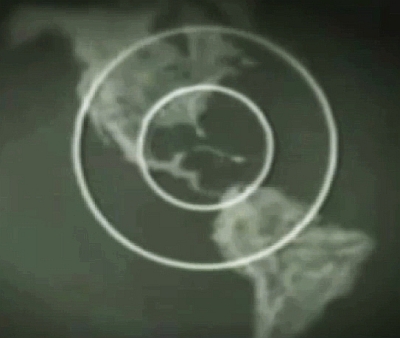
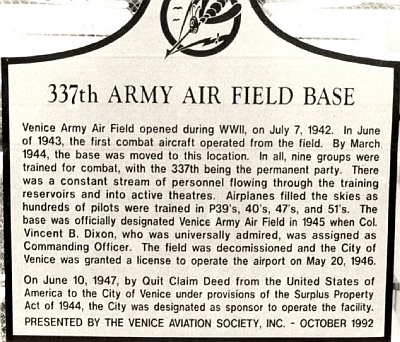
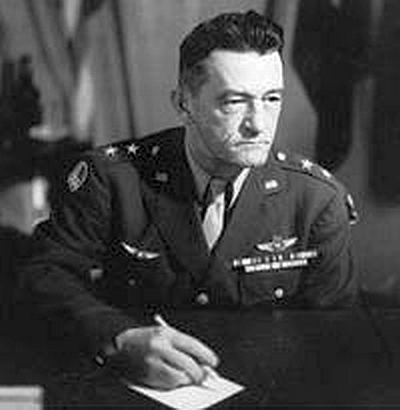 The Venice
The Venice 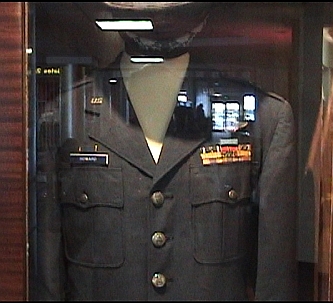 At the Clearwater St. Petersburg International Airport, home of the
At the Clearwater St. Petersburg International Airport, home of the  General Claire Chennault's Flying Tigers had a strong presence in Venice.
General Claire Chennault's Flying Tigers had a strong presence in Venice. 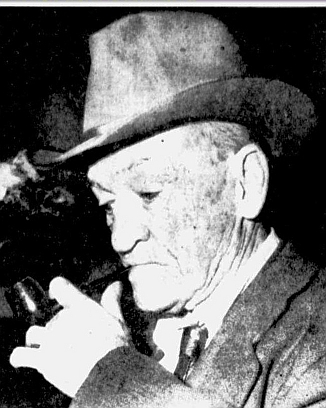
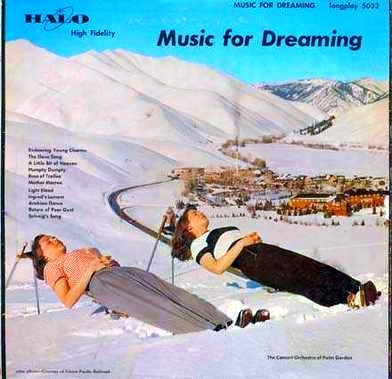 There are dozens of examples. A clear consensus of investigative reporters, authors, and scholars have reached the same conclusion...
There are dozens of examples. A clear consensus of investigative reporters, authors, and scholars have reached the same conclusion... 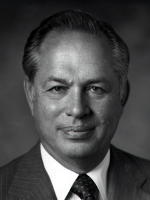 The man who owned the flight school that taught Mohamed Atta to fly got rich selling his insurance company, we have learned, to the man who PAID “The Men Who Stare at Goats.”
The man who owned the flight school that taught Mohamed Atta to fly got rich selling his insurance company, we have learned, to the man who PAID “The Men Who Stare at Goats.” DuBain became chairman of SRI International in 1985, at a crucial time when the U.S. Defense Dept. was growing increasingly concerned with advances in psychic research behind what was then called the “Iron Curtain.”
DuBain became chairman of SRI International in 1985, at a crucial time when the U.S. Defense Dept. was growing increasingly concerned with advances in psychic research behind what was then called the “Iron Curtain.”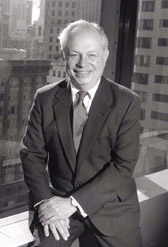 Du Bain’s first stint running SRI was also tumultuous.
Du Bain’s first stint running SRI was also tumultuous.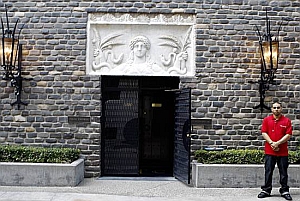 With oilman Gordon Getty and Reagan Secretary of State George Shultz, DuBain founded an exclusive private San Francisco supper club.
With oilman Gordon Getty and Reagan Secretary of State George Shultz, DuBain founded an exclusive private San Francisco supper club.  Wally Hilliard’s connection with Myron Du Bain may shed light on Hilliard’s curious metamorphosis after retiring to Florida in 1996.
Wally Hilliard’s connection with Myron Du Bain may shed light on Hilliard’s curious metamorphosis after retiring to Florida in 1996. 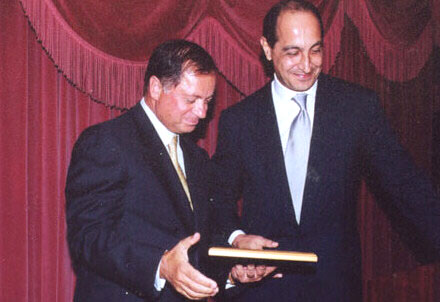 Neither Hilliard nor his business partner in
Neither Hilliard nor his business partner in 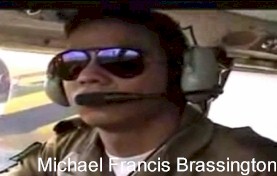
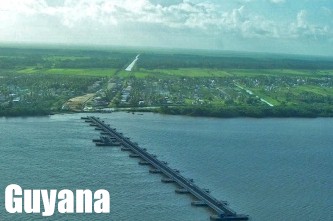 poor sanitation... and an unfinished sports stadium with an unpaved parking lot in the capital of Georgetown, which
poor sanitation... and an unfinished sports stadium with an unpaved parking lot in the capital of Georgetown, which 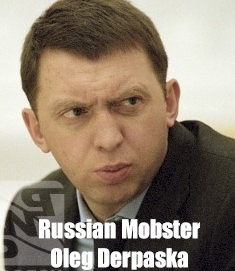
 Deripaska's marriage into the Yeltsin family cemented his leap. "By the time Oleg got married, he really was representing the family," one banker with knowledge of the matter told the Times. "It's a family partnership. You don't mess with ex-presidents or their families."
Deripaska's marriage into the Yeltsin family cemented his leap. "By the time Oleg got married, he really was representing the family," one banker with knowledge of the matter told the Times. "It's a family partnership. You don't mess with ex-presidents or their families."